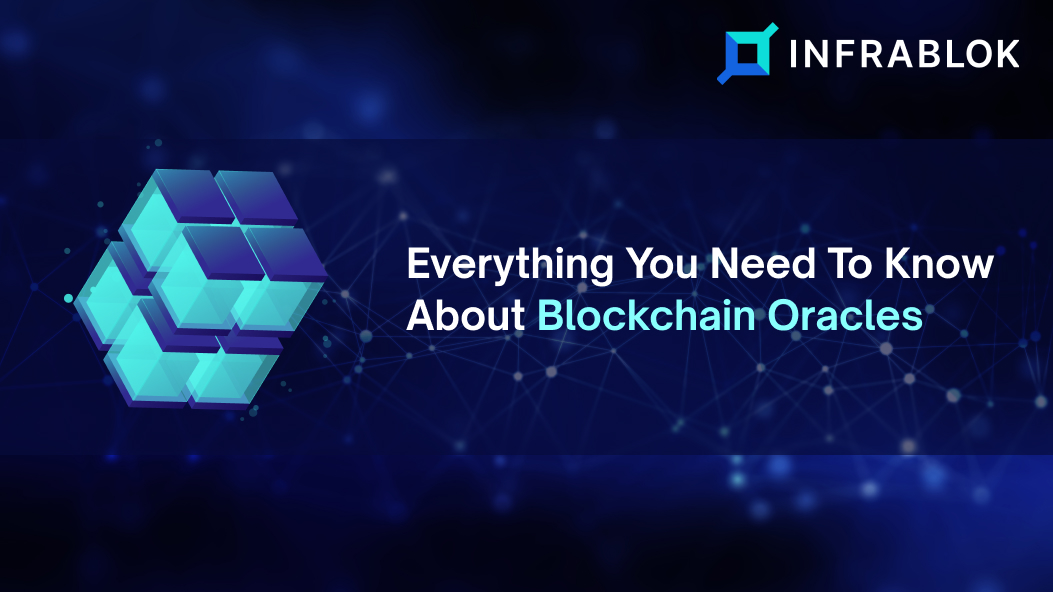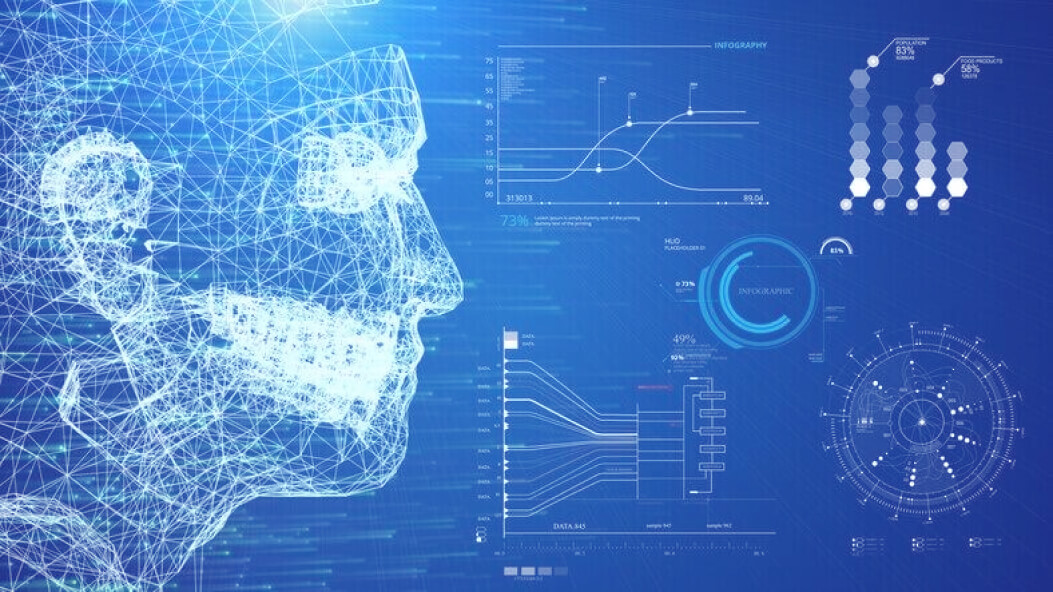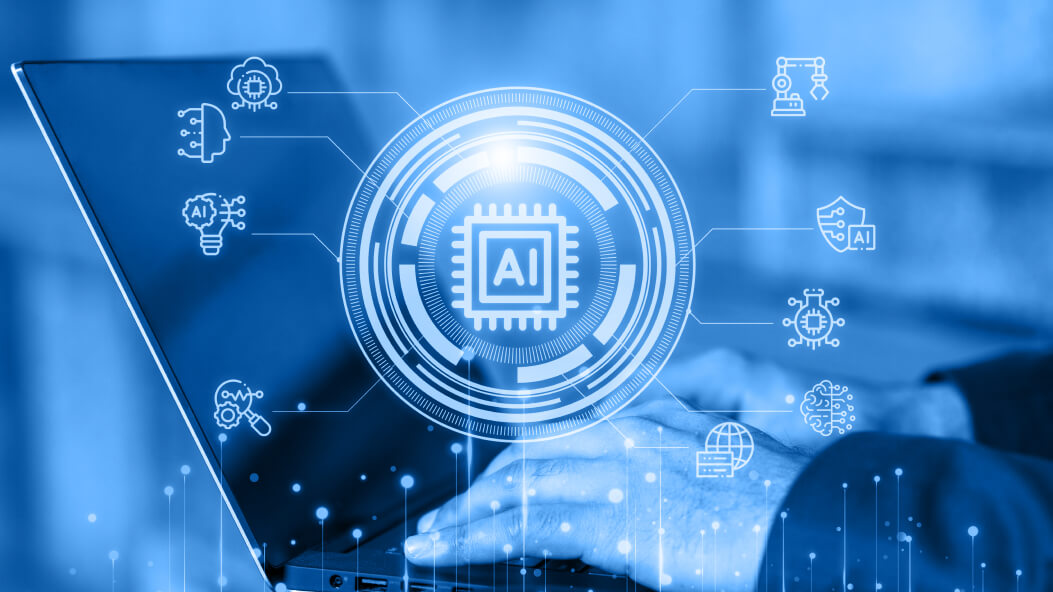Blockchain Oracles provide a link between off-chain and on-chain data, i.e., they act like a bridge between the data of the real world and the smart contracts of the web3 world. It means that oracles are the main source that gives data to smart contracts, which helps broaden the scope of smart contracts and Blockchain applications.
But it does not mean that Blockchain oracles are the data source as they work at the network’s core, forming an infrastructural layer that works beside Blockchain. It gathers data by querying external data sources, verifying it, and then supplying the resultant information to smart contracts in the Blockchain.

Moreover, with Oracles, the issue of connecting the two worlds was resolved, but Blockchain’s very basis seemed deluded. The trustworthiness and reliability of Blockchain are based on its concept of being decentralized & deterministic, but none of it was conceptualized in Oracles. Thus, giving rise to the Blockchain Oracle Problem…
Major Problem Related to Blockchain Oracle
Anything that is written on the Blockchain is immutable, which makes it trustworthy, but anything that Oracle supplies is not immutable until it reaches the Blockchain, which means, data might get counterfeited or tweaked by anyone in the Oracle before it gets registered in the digital ledger over Blockchain.
It directly conflicts with the Blockchain’s fundamentals of security, authenticity, and trust, thus creating the Blockchain oracle problem.
Smart contracts work with an aim to get a deterministic answer to questions like, Will party A win the election? Or will the stock of B generate profit? Getting a deterministic answer to these questions through smart contracts is based on getting to the consensus of true/false stored in its distributed ledger. But to reach the consensus, smart contracts require data from the real world, like market predictions or the result of a game or an election result; feeding data to the smart contracts is where oracles come into play. Though they are required for data yet, being controlled by third parties outside of blockchain makes them untrustworthy.
Types of Oracles
The solution to the above problem lies in decentralizing these oracles and creating a decentralized network of oracles. Designing a network of oracles would require choosing the right type of oracle, depending on what sort of application you want to design and other requirements. The Blockchain oracles are classified into three different types that are:
1. Direction Of Information Flow
Depending on the direction of the information flow, oracles are categorized as follows –
Inbound Oracles
Inbound Oracles fetch data from the real-world (off-chain) and deliver it onto a Blockchain network for smart contract consumption.
These oracles are utilized to power Chainlink Price Feeds, offering DeFi smart contracts on-chain access to financial market data.
Outbound Oracles
Outbound Oracles are just the opposite of inbound oracles, which permit smart contracts to send commands to off-chain systems to execute certain actions.
It can include telling the storage provider to store the supplied data, reporting the banking network to make a payment, or pinging an IoT system to unlock a bus door once the on-chain rental payment is made.
Computation Oracles
Computation Oracles are a mixture of both inbound and outbound oracles. Whenever an app needs to compute data after receiving a certain value from the Blockchain’s smart contract (on-chain), it computes the data off-chain & sends the result to the smart contract.
2. Source Of Information
It helps in identifying oracles based on the Source of information origin and is categorized as follows –
Software Oracles
Software oracles are used when an application requires data from an online source (internet). They can collect real-time information from servers, websites, databases, APIs, or any online digital source available on the internet.
For example, an oracle can give real-time weather updates to an insurance application’s smart contract that manages claims of damaged crops due to bad weather.
Hardware Oracles
When an application requires data from the real world, then hardware oracles are used. They collect data with the help of scanners, sensors, and IoT devices.
For example, tracking the geolocation of goods in a supply chain requires a QR code to be scanned and sent that code to the Blockchain’s smart contract.
Human Oracles
When an application requires specialized skills in mathematics, finance, or any specialized field, then a human with the required set of knowledge can act as an oracle. In order to reduce the chances of fraud, humans can be cryptographically identified.
For example, an application to settle an arbitration dispute might require human intervention when two parties disagree on the settlement. A human oracle would then check previous data and find the solution.
3. Centralized/Decentralized
An oracle may be centralized or decentralized, as described below:
Centralized
An oracle with a single source of information or being controlled by a single entity is called a centralized oracle. Having a fixed source makes them more vulnerable and gives the whole network a single point of failure.
It can act as a bridge between on-chain and off-chain data but will not be trustworthy and, thus, must only be used when no other alternative is available.
Decentralized
An oracle network that has multiple sources of information or is not controlled by a single entity. Being off-Blockchain, it does not guarantee 100% trust. The trust divides into multiple nodes as they give results only after a majority consensus is reached amongst participating nodes giving it much higher credibility. Data fetched and processed by decentralized oracles are more accurate and far more trustworthy than centralized oracles.
Depending on the application, an oracle might belong to any type explained above or have more than one type of functionality.
For example, suppose the source of information for a private application is a single data source. In that case, it will be centralized software inbound oracle, whereas if an application requires settling claims for delayed delivery of a package, then it will be a decentralized hardware inbound oracle.
The Best Blockchain Oracles to Use In dApps
There are various options available that provide Blockchain oracles to be integrated with dApps. Some of them are –
Chainlink
In the decentralized network, you can pick the number of nodes required, the collateral those nodes should have, and data sources are collected to enter the data into the Blockchain’s smart contract.
Moreover, it supports Ethereum, BNB, Polygon, Avalanche, Fantom, and Arbitrum & provides support to integrate it with other chains.
Oraclize
It ensures data authenticity while connecting dApps with external web APIs. It supports public chains like Ethereum, Bitcoin, Rootstock, EOS Mainnet, Testnet, and private Ethereum-based chains.
API3
It provides Airnode as its 1st party Blockchain oracle and ensures to connect via web API directly without any requirement of any third parties. It needs to be set up once it is completed; it can handle all future management and maintenance.
DIA
Decentralized Information Asset (DIA) is a multichain, open-source data, oracle solution for decentralized finance. It allows the customization of data feeds in the context of data sources and methodologies. It supports EVM chains, Solana, Polkadot, etc.
Moreover, many more oracle solutions are available, the choice of which fully depends upon the application’s needs.
If you want to choose one of the best Blockchain Oracles for dApp development, consider the following criteria to make the right decision…

Where To Use Blockchain Oracles?
You can use oracles to create more advanced decentralized applications (dApps). While there are infinite possibilities to use Blockchain Oracle, the use cases with the most current adoption are below.
Decentralized Finance (DeFi)
An enormous portion of the decentralized finance (DeFi) ecosystem needs oracles to access financial data about assets & markets.
For example, decentralized money markets utilize price oracles to specify users’ borrowing capacity and inspect if users’ positions are undercollateralized and subject to liquidation.
Similarly, to increase capital efficiency, synthetic asset platforms and automated market makers (AMMs) use price oracles to help peg token values to real assets.
Dynamic NFTs and Gaming
Using Oracles, smart contracts can be used for non-financial reasons, such as dynamic NFTs (Non-Fungible Tokens) whose appearance, value, or distribution can change depending on the time of day or weather.
Furthermore, compute oracles are used to generate verifiable randomness that projects use to assign randomized traits to NFTs or to select random winners to receive high-demand NFTs. In addition, On-chain gaming apps also utilize verifiable randomness to make more engaging & surprising gameplay experiences.
Insurance
Insurance smart contracts employ input oracles to prove the occurrence of insurable events while claims processing, opening-up keys to physical sensors, web APIs, legal data, and satellite imagery.
Output oracles can also provide insurance – smart contracts to make payouts on claims utilizing other Blockchains or traditional payment networks.
Wrapping Up
A trustworthy mechanism that facilitates the communication between smart contracts & the external world is crucial to the global adoption of Blockchains. Without Blockchain Oracles, smart contracts would have to depend only on details existing within their networks, which would greatly confine their capabilities.
Decentralized Oracles have the potential to introduce safeguard mechanisms that could eradicate systemic risks from the Blockchain ecosystem. Blockchain Oracles remain one of the crucial building blocks to be enforced in a reliable, secure, & trustless manner for the Blockchain ecosystem to grow. Moreover, these decentralized oracles together form a decentralized oracle network (DON); click here to know more about it!
Additionally, if you are looking forward to using Blockchain Oracles in your next business project, feel free to connect with one of the reliable Blockchain development companies (Infrablok). Doing so, you will get a professional development team who will help you get things done as per your needs.





